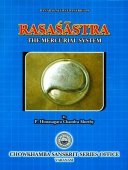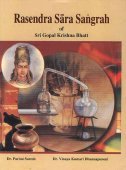Vijayawada, Vijayavada, Vijayavāḍa, Vijaya-vada: 6 definitions
Introduction:
Vijayawada means something in Buddhism, Pali, the history of ancient India. If you want to know the exact meaning, history, etymology or English translation of this term then check out the descriptions on this page. Add your comment or reference to a book if you want to contribute to this summary article.
In Buddhism
General definition (in Buddhism)
Source: WikiPedia: BuddhismChinese Buddhist scholar Xuanzang stayed few years in Bezawada (Vijayawada) in around 640 A.D. to copy and study the Abhidhamma Pitaka, the last of the three pitakas (Pali for baskets) constituting the Pali canon, the scriptures of Theravada Buddhism.
India history and geography
Source: Wisdom Library: India HistoryVijayawada a town in India also know as Vijayavata (Vījayavāṭa). Other names include Rajendracholapura and Bezvada or Bezawada.
Source: Wikipedia: India HistoryVijayawada is a city in the Andhra Pradesh Capital Region, on the banks of River Krishna in Krishna district of the Indian state of Andhra Pradesh. Bezwada (as Vijayawada was known then) was founded around 626 A.D. by Paricchedi Kings (ancestors of Pusapati Kings of Vizianagaram. Vijayawada history reveals that Bezawada (Vijayawada) was ruled by King Madhava Varma (one of the kings of Vishnukundina dynasty).
In some legends, Vijayawada (Vijayavata) was referred to as “Rajendracholapura”. A tale behind its acquiring the name Bezawada is that Goddess Krishnaveni (River Krishna) requested Arjuna to make a passage for her to merge into the Bay of Bengal. Hence, Arjuna made a bejjam (hole) through the mountains and the place came to be known as Bejjamwada which later changed to Bezawada.
Source: Shodhganga: Urbanism in the Krishna and Godavari deltasVijayawada (Bezawada) is the premier urban settlement in the Krishna and Godavari Deltas. It is believed that the ancient name of Vijayawada was Vijayavatika. The city can boast of a hoary antiquity in that its past can be traced back to mythology. It is stated that the city has derived its name from Vijaya or Arjuna: the hero of the great epic Mahabharatha, who performed penance on the sacred Indrakiladri Hill of this place and secured the divine Pasupathastra from the Lord Siva (Malleswara). The Malleswara temple is supposed to have been errected by Arjuna himself to commemorate the darshan he had of him.
Vijayawada was the capital of the great Andhra Satavahana Empire which flourished during 250 B.C. to 250 A.D. In fact, the entire lower Krishna Valley as far as Nagarjuna-konda was an important centre of Buddhist culture. As Vijayawada provided a fording place, the armies of kings, pilgrims, traders and travellors used to halt at this place before or after crossing the river. Amaravathi was a famous place of Buddhist learning and boats were plying in the Krishna River upto this place.
Source: Shodhganga: Early dynasties of Andhra DesaVijayavada, Vijayavata, Vijayavatika, modern Bezwada, seems to have risen to great importance from the ninth century A.D. onwards. Its antiquity would be carried much further back if future discoveries should prove its identity 10 with the Vijayapura of an early Amaravati inscription. “Bezawada” is mentioned in the inscription of Yudhamalla found on a stone pillar in Malleswara temple at Vijayawada. This inscription belongs to saka 820 (898 A.D.).
Source: What is India: Annual Report on Indian Epigraphy (1945-1952)Vijayavāḍa is an archaeologically important site situated in Bezwada-taluk (Krishna district, Madras), known for inscriptions regarding the ancient history of India. For example, at Vijayavāḍa there is a slab fixed in the southeast corner of the second landing on the way from the Mallikārjuna temple to the Kanakadurgā temple. It contains an inscription which belongs to king Sarvalokāśraya Viṣṇuvardhana of the Eastern Chālukya dynasty.

The history of India traces the identification of countries, villages, towns and other regions of India, as well as mythology, zoology, royal dynasties, rulers, tribes, local festivities and traditions and regional languages. Ancient India enjoyed religious freedom and encourages the path of Dharma, a concept common to Buddhism, Hinduism, and Jainism.
See also (Relevant definitions)
Partial matches: Vada, Vata, Vijaya.
Full-text: Bezvada, Mogalrajapuram, Palnativiracaritra, Vijayavata, Natavadi, Pananrisimha.
Relevant text
Search found 6 books and stories containing Vijayawada, Vijayavada, Vijayavāḍa, Vijaya-vada, Vijaya-vāḍa; (plurals include: Vijayawadas, Vijayavadas, Vijayavāḍas, vadas, vāḍas). You can also click to the full overview containing English textual excerpts. Below are direct links for the most relevant articles:
The history of Andhra country (1000 AD - 1500 AD) (by Yashoda Devi)
Introduction (Parichchedi Dynasty) < [Chapter VI - The Parichchedis (A.D. 1040-1290)]
Part 12 - Alladanatha Devaraja and Bhimaraja (A.D. 1283) < [Chapter VI - The Parichchedis (A.D. 1040-1290)]
The Architect of Indian National Flag < [July – September, 2003]
Who is Who Among Our Contributors < [January – March, 2002]
Reader’s Mail < [July – September, 2002]
Amaravati Art in the Context of Andhra Archaeology (by Sreyashi Ray chowdhuri)
Lower Kṛṣṇā Valley (9): Guḍivāda < [Chapter 2 - Amarāvatī and other Archaeological Sites of Ancient Andhra Pradesh]
Region Beyond The Coastal Lines (3): Phanigiri < [Chapter 2 - Amarāvatī and other Archaeological Sites of Ancient Andhra Pradesh]
Middle Chola Temples (by S. R. Balasubrahmanyam)
Temples in Kalidindi < [Chapter IV - Temples of Rajendra I’s Time]
Vira Rajendra (a.d. 1062-1070) < [Chapter V - Successors of Rajendra I (a.d. 1018 to 1070)]
Significance of the Moon in Ancient Civilizations (by Radhakrishnan. P)
2. Dr. Balamuralikrishna (Carnatic Voclist) < [Chapter 14 - Case Studies of Natal Chart]
Pallava period (Social and Cultural History) (by S. Krishnamurthy)
Related products


